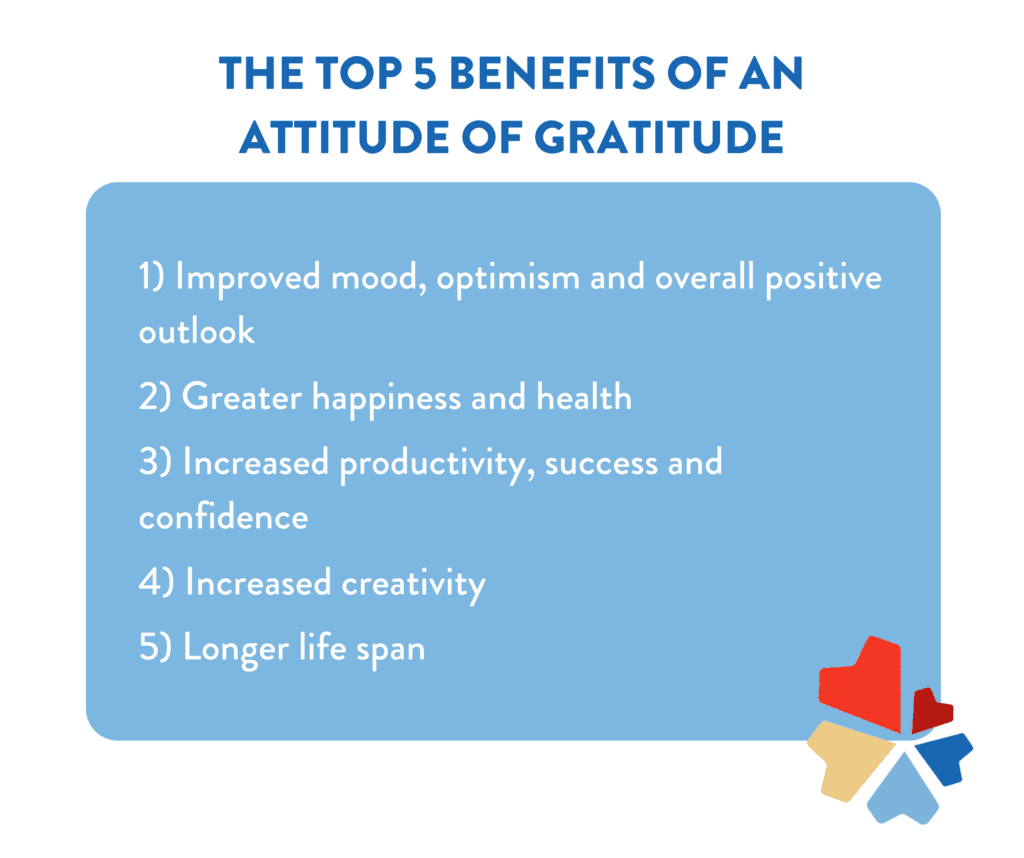Attitude of Gratitude – You Can Live Healthy And Happy
November is hailed as a time for gratitude, culminating in the American tradition of Thanksgiving. It’s also the culture topic this month at Generations, and we encourage everyone to see how we celebrate gratitude with our residents. You can follow your local community to see what our residents share on Facebook. Or, visit one of our communities for Thanksgiving or Friendsgiving dinner. Contact us to find out more.
After November is over, though, there is still plenty of reason to practice gratitude throughout the year. Research provides ample evidence that having an “attitude of gratitude” promotes a sense of wellbeing, improves health and increases happiness.
What Is Gratitude?
According to the online Oxford dictionary, gratitude is “the quality of being thankful; readiness to show appreciation for and to return kindness.” Practically speaking, an “attitude of gratitude” is the act of looking for and acknowledging what’s good in our lives.
Benefits of Gratitude
The list of benefits for practicing gratitude is long. In a Harvard Medical School publication, “Giving thanks can make you happier,” researchers report “Gratitude helps people feel more positive emotions, relish good experiences, improve their health, deal with adversity, and build strong relationships.” This is why we have made gratitude the culture topic this month at Generations — we want to spread the word about what an impact gratitude has on us.
Gratitude is consistently and strongly associated with greater happiness and health. Research conducted by psychologists Dr. Robert A. Emmons and Dr. Michael E. McCullough found that over a 10-week period, people who wrote about gratitude were more optimistic, felt better…and had fewer trips to the doctor.
Gratitude can also improve relationships. By expressing gratitude for their partner, couples felt more positive toward one another and also took more risks in expressing concerns. At work, managers who express gratitude toward employees found that this improved motivation.

Why Gratitude Works
Have you ever heard the phrase, “Perception is reality”? It means that how we perceive our world determines what we experience as reality, meaning that what we focus on shapes how we see the world and how we feel. In general, focusing on what’s wrong makes us feel worse. By focusing on what we can be thankful for makes us feel better. It’s that simple.
If Gratitude Is So Great, Why Is It Hard?
Even with all the known benefits of gratitude, however, sometimes practicing it is easier said than done. First, re-training our brains takes some patience and practice. Our brains are hardwired to focus on what’s negative. And, given all the transitions and challenges we face as we age, it may seem pretty easy to find something that’s going wrong.
Give yourself credit for trying something new. Celebrate any time you express appreciation for something, even if it’s small.
One important caveat: Although practicing gratitude can help you experience more positive emotions, it is different from the advice to just “be positive,” which sometimes can feel judgmental. Instead, consider that gratitude is an active practice, and through that practice you will likely start to feel better.
Tips for Building a Gratitude Practice
Here at Generations, we are helping residents build a gratitude practice by sharing their gratitude on social media. Check out our Facebook page to see what residents are grateful for. It might give you some ideas about what you can be grateful for. Below are some additional tips on how to start a gratitude practice.
- Start small. When you wake up, be grateful for your bed, for breathing, for water to brush your teeth, and for a flushing toilet. If you’re reading this, can you be thankful for breathing, or for that you can see and read?
- Keep a list. In the morning, try writing down one thing (or more!) you can be grateful for. At night (or any time during the day), write down one thing that went well. This practice helps teach your brain to be on the lookout for good things.
- Express gratitude toward someone else verbally or in writing. Try calling up someone or writing them a letter to let them know what you appreciate about them and what you’re thankful for. You don’t even have to send the letter to reap the benefits of gratitude.
- Past, present, future. What can you be grateful for about your past? This present moment? The future? Pause and give yourself a chance to feel the gratitude.
- Look to nature. Mother Nature is bountiful and by focusing on what we receive from her, we can improve our outlook.
We hope to see you on Facebook or at your local Generations community to help us celebrate Thanksgiving (or Friendsgiving!) — contact us to find out more.

We have been at work behind the scenes to bring you an updated Vision, Mission and Values.

Benefits of Art Therapy for Seniors. Each Generations community participates in a collaborative art…

Learn how to transform your community to live longer, better
